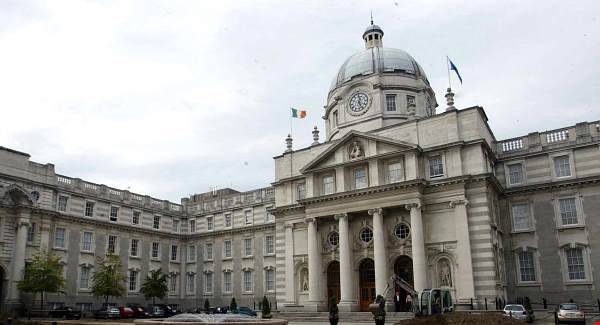Last Friday, it was revealed that the Department of Higher Education plans to increase the number of places in high demand courses such as medicine, nursing, and engineering by 5%. Minister for Further and Higher Education Simon Harris confirmed on RTÉ Radio 1 today that he would bring the department’s proposal to cabinet tomorrow.
While such plans aim to ease the burden on students transitioning to third-level in the midst of a pandemic, it is unclear exactly how they will be executed. With third-level funding already in crisis, and colleges having to reduce face-to-face teaching, it is clear that work needs to be done if class sizes are to be increased effectively.
As it stands, Irish universities will likely struggle with increased class sizes. In a statement on Friday, Deputy General Secretary of the Irish Federation of University Teachers (IFUT), Frank Jones said that these plans coincided with large scale terminations of precariously employed lecturing staff. “We simply can’t be expected to miraculously deliver more teaching with fewer teachers,” Jones said. The statement emphasised the need for extra funding if the department’s plans are to work, and said that while the recent emergency funding provided to the sector was welcome, it would not effectively resolve the current crisis in third-level funding.
That emergency funding comes as part of a €168m package announced last month by Minister for Further and Higher Education Simon Harris. While this will provide much needed funds for struggling third-level institutions, it may not be enough, as universities expect shortfalls of up to €500m in the second half of this year. The funding is also not intended to cover any deficits and losses beyond the effects of Covid-19.
The level of government funding for Ireland’s third-level institutions has fallen from €9,000 per student in 2008 to €5,000 in 2019, and colleges have made up for such losses by cutting costs and increasing fees. If the government plans to provide additional spaces in high demand courses, they must also provide necessary funding to avoid deepening this crisis.
One suggested reason for the government’s decision is the expectation that fewer students will decide to study abroad or take a gap year as a result of the pandemic, resulting in higher demand for courses in Ireland. Although the total number of Central Applications Office (CAO) applications was relatively similar to last year, Trinity did see a significant increase in applications, along with University College Dublin (UCD), and Maynooth University.
As more Irish students decide to study at home however, fewer international students may choose to come to Ireland, and the issue of funding arises again as universities expect to lose significant fee and accommodation income. In June, Trinity’s Vice President of Global Relations, Juliette Hussey, said that “without a doubt universities will see a decrease in fee income in the coming year”. With third-level institutions taking such a financial blow this year, it is unclear how they will be able to handle increased class sizes.
While online classes will allow for increased class sizes, it is unclear whether students’ time on campus will be further limited by the governments’ announcement. Students in Trinity are expected to be split into “pods” to allow for limited contact when on campus. If some courses take on larger class sizes, colleges may need to dilute students’ on campus hours even further. Furthermore, courses that require in-person lab work, such as medicine and engineering, may not have enough space and equipment to handle larger class sizes while adhering to social distancing requirements.
The news of the government’s decision raises a number of other serious questions. How will universities cope with adding new students with such short notice, and how will this affect a system which is already overwhelmed both financially and administratively? Finally, while increasing access to higher education is a welcome move and has been a talking point in the department for years, it begs the question why the department did not do so before Covid-19? Trinity has yet to comment on the news, but no doubt these questions will be relevant should they seek to provide additional places.
This article was updated on 31 August 2020 at 3:57pm to include the details of a radio interview with Minister Simon Harris






